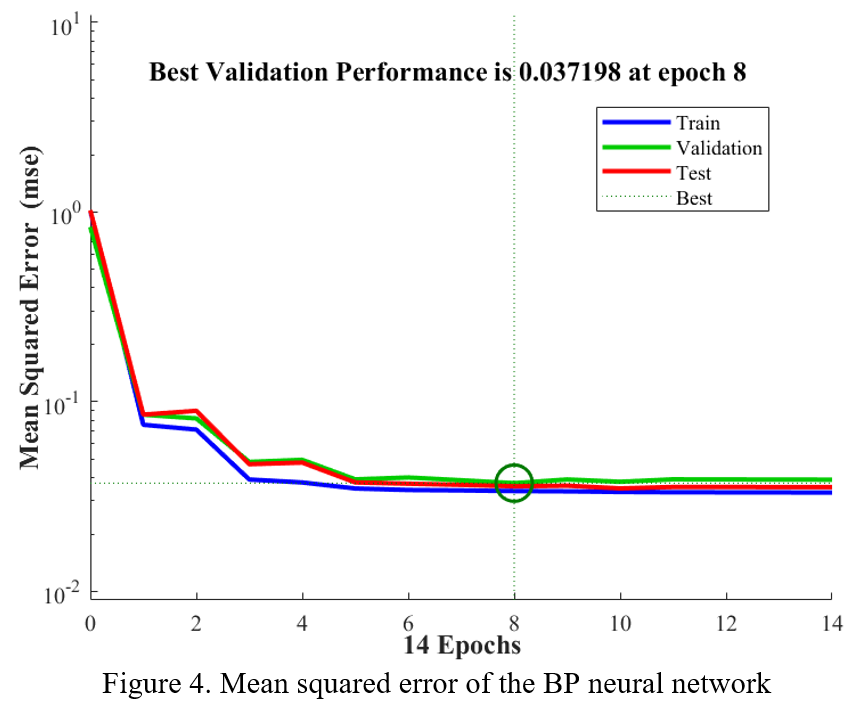Flow Prediction Model in English Intercultural Learning Based on BP Algorithm
Abstract
In recent years, the emotions in English learning have been studied. To investigate the flow experience in the intercultural learning in English as a Foreign Language (EFL) class, a questionnaire survey was conducted with 460 students in one vocational college and 450 valid questionnaires were collected. The SmartPSL was utilized for data analysis to determine the moderating effects of flow experience and core input vectors were selected for the Backpropagation Neural Network (BPNN) model. After constructing a flow prediction model for English intercultural learning and validating the predictive results, the study showed that learners were able to enter a flow state and the predictive outcomes were relatively accurate. Based on the results, the study has been highlighted the significance of flow experience in intercultural English learning. It also offers a flow prediction model, which assists teacher to assess students’ active emotion in English learning and to enhance the teaching quality in intercultural teaching.
Downloads
References
Deardorff, D. K. (2006). Identification and assessment of intercultural competence as a student outcome of internationalization. Journal of Studies in International Education, 10(3), 241–266. https://doi.org/10.1177/1028315306287002
Peng, R.-Z., Zhu, C., & Wu, W.-P. (2020). Visualizing the knowledge domain of intercultural competence research: A bibliometric analysis. International Journal of Intercultural Relations, 74, 58–68. https://doi.org/10.1016/j.ijintrel.2019.10.008
Deardorff, D. K. (Ed.). (2009). The SAGE handbook of intercultural competence. Sage Publications.
Liddicoat, A. J., & Scarino, A. (2013). Intercultural language teaching and learning. Wiley-Blackwell.
Shaules, J. P. (2016). The developmental model of linguaculture learning: An integrated approach to language and culture pedagogy. Juntendo Journal of Global Studies, 1, 2–17.
Csikszentmihalyi, M. (1990). Flow: The psychology of optimal experience. Harper & Row.
Barthelmäs, M., & Keller, J. (2021). Antecedents, boundary conditions, and consequences of flow. Springer.
Egbert, J. (2003). A study of flow theory in the foreign language classroom. The Modern Language Journal, 87(4), 499–518. https://doi.org/10.1111/1540-4781.00204
Shin, N. (2006). Online learners’ “flow” experience: An empirical study. British Journal of Educational Technology, 37(5), 705–720. https://doi.org/10.1111/j.1467-8535.2006.00641.x
Zaffar, M., et al. (2022). A hybrid feature selection framework for predicting student performance. Computers, Materials & Continua, 70(2), 1893–1920. https://doi.org/10.32604/cmc.2022.018295
Zhang, L., Chen, Y. F., Pei, Z. Q., et al. (2022). Application of BP neural network in classification and prediction of blended learning achievements. Journal on Artificial Intelligence, 4(1), 15–26. https://doi.org/10.32604/jai.2022.027730
Li, R., Meng, Z., Tian, M., et al. (2019). Modelling Chinese EFL learners’ flow experiences in digital game-based vocabulary learning: The roles of learner and contextual factors. Computer Assisted Language Learning, 34(5), 483–505. https://doi.org/10.1080/09588221.2019.1619585
Wang, X., & Huang, C. (2022). Conceptualization and measurement of flow in a Chinese blended English as a foreign language learning context. Frontiers in Psychology, 13, 839267. https://doi.org/10.3389/fpsyg.2022.839267
Huang, L.-J. D. (2021). Developing intercultural communicative competence in foreign language classrooms: A study of EFL learners in Taiwan. International Journal of Intercultural Relations, 83, 55–66. https://doi.org/10.1016/j.ijintrel.2021.04.015


This work is licensed under a Creative Commons Attribution 4.0 International License.
Copyright for this article is retained by the author(s), with first publication rights granted to the journal.
This is an open-access article distributed under the terms and conditions of the Creative Commons Attribution license (http://creativecommons.org/licenses/by/4.0/).









1.png)









1.png)











